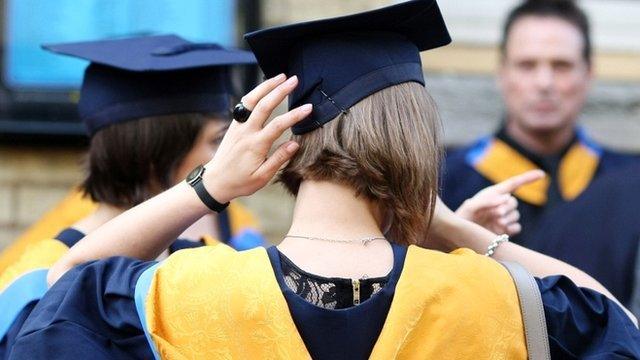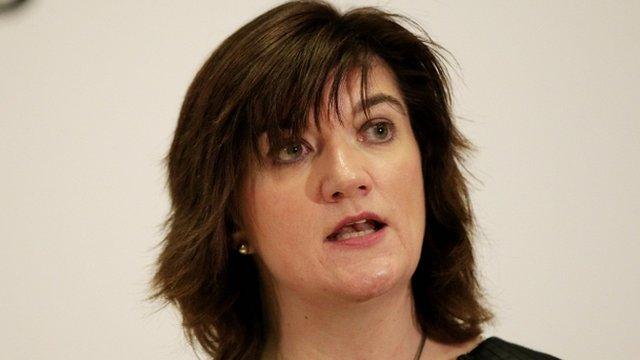Student loan rates absurd, say MPs
- Published
- comments

The measure used to set interest rates on student loans is flawed and unfair, say MPs
The inflation measure used to set interest rates on student loans is "absurd", says a report from MPs.
The government uses RPI - the Retail Prices Index - which the Treasury Select Committee says is "flawed" and should be "abandoned".
The rise in that measure will push interest rates on student loans for tuition fees up to 6.3% in the autumn.
The Department for Education defended the continuing use of RPI, saying it provided "consistency over time".
Nicky Morgan, who chairs the committee, said the use of RPI for loan repayments, which "normally gives a higher rate of inflation", appears "grossly unfair".
'Punitive'
The DFE, responding to the MPs' criticism, acknowledged that "the flaws in the RPI measure of inflation are well understood", but said that a review of tuition fees and loans was currently under way and the outcome could not be "pre-judged".
Five things you should know about your student loan debt
This review is due to report in early 2019. And until then student loans will continue to be set using RPI.
This is despite an official warning about the use of RPI earlier this year from the national statistician, John Pullinger, who said: "We do not think it is a good measure of inflation and discourage its use."
The Treasury Select Committee says that student loans should be set against the Consumer Prices Index (CPI), which is currently a percentage point lower than RPI.
It strongly rejected the government's argument to stick with RPI.
"Continuing to use a measure that it readily admits is flawed, on the grounds of consistency, is absurd," Mrs Morgan, herself a former education secretary, said.
"It guarantees that student loan interest rates will be consistently flawed."
The interest rates for loans, which begin to be charged as soon as students start at university, are set at the level of RPI in March, plus 3%.

Nicky Morgan says the use of RPI for interest on student loans is "grossly unfair"
With an RPI measure of 3.3%, it means that for the next academic year interest rates will be up to 6.3%, although students do not have to begin repayments until they have graduated and are earning over £25,000 per year.
The CPI rate for March was 2.3%.
The report from MPs says interest charges are too high and there has been no "persuasive explanation" for why student loan interest should be so much higher than market rates, the government's own cost of borrowing or the rate of inflation.
The MPs also challenged the application of interest rates while students were still at university, saying the government should reconsider such "punitive measures".